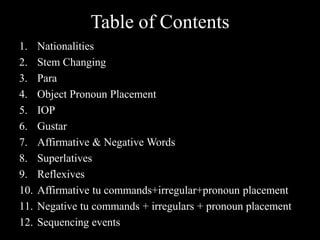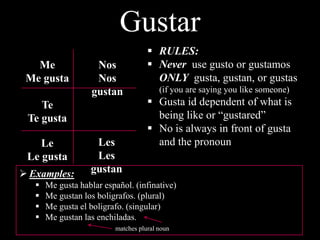Este documento contiene un índice y resúmenes de varios temas de gramática española, incluyendo verbos de cambio temático, el uso de "para", la colocación de pronombres, "gustar", palabras afirmativas y negativas, superlativos, reflexivos, mandatos afirmativos e irregulares con colocación de pronombres, y la secuencia de eventos. El documento proporciona ejemplos y explicaciones concisas de cada uno de estos conceptos gramaticales.













